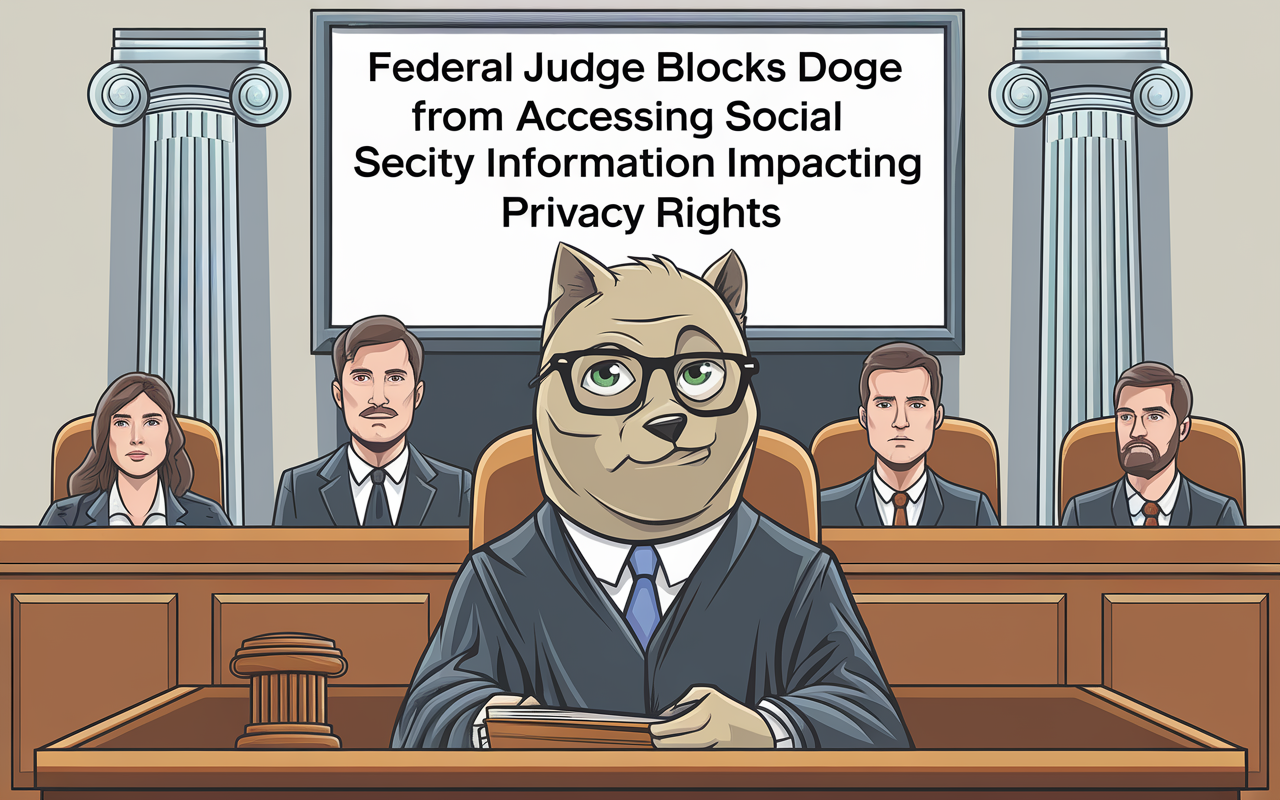Federal Judge Blocks DOGE's Access to Social Security Information 🚫🛡️
A groundbreaking decision has just hit the news! A federal judge has stepped in to block DOGE's access to the Social Security Administration's (SSA) databases, which store sensitive personal information of millions of Americans. 📜💼
The Ruling Explained ⚖️
In a ruling delivered by U.S. District Judge Ellen Hollander from Maryland, the court accused DOGE—part of Elon Musk’s Department of Government Efficiency—of conducting what she termed a "fishing expedition" for fraud based on mere suspicion. The Judge articulated that DOGE had failed to provide a sufficient rationale for requiring such access to this highly sensitive data.
This ruling is significant not only for the implications it has for DOGE but also for the broader issues related to privacy and cybersecurity. The databases in question house a plethora of personal information including Social Security numbers, medical records, and tax information, all of which are under strict federal protection. 🔒
What Does This Mean for Privacy? 🕵️♀️
Judge Hollander’s decision aligns with the growing concern over how personal data is accessed and used in the digital age. With the increasing complexities surrounding data privacy laws, it’s crucial that organizations requesting access to such data have a compelling reason and take necessary steps to ensure that the information is secure.
The Judge also warned about potential cybersecurity risks associated with allowing access to DOGE, which has a small team of personnel at SSA, some of whom were already privy to sensitive personal data. This raises significant concerns about data breaches and unauthorized access that could compromise the security of Americans' personal information. ☠️
The Bigger Picture 🌍
This case serves as a wake-up call for companies and government entities alike concerning their responsibility to protect citizens' private data. It highlights the need for stringent measures in place to regulate access and ensure accountability.
In the rapidly evolving digital landscape, transparency and justification for data access are paramount. 🚀
In Conclusion 📝
Overall, this landmark decision is a critical reinforcement of privacy protections and serves as a stern reminder to all entities, public or private, that managing personal information comes with serious responsibilities. As we advance into an increasingly data-driven world, prioritizing cybersecurity and privacy will be essential in fostering public trust.
What do you think about this ruling? Should similar restrictions be applied to other organizations? Let’s discuss in the comments! 💬👇
For more insightful posts, don’t forget to follow along!

More Stories
Meta’s AR Ambitions and AI Safety: Insights from the Equity Podcast
Insight Partners Data Breach: A Wake-Up Call for Cybersecurity Awareness
Lovable’s Ascendancy: Anton Osika at TechCrunch Disrupt 2025